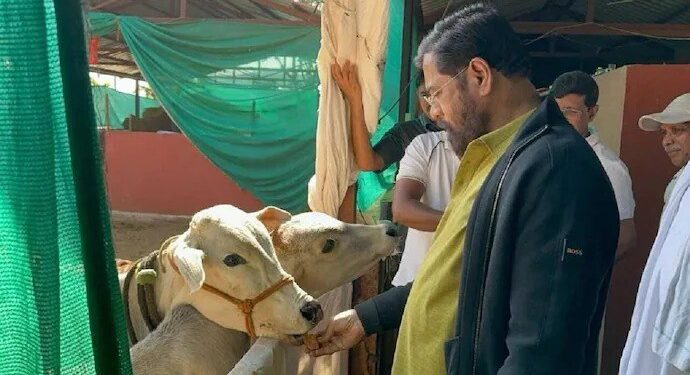The Maharashtra government has given indigenous cow breeds the status of ‘Rajyamata-Gomata’ (state mother cow) in recognition of their cultural and agricultural significance.
The state Cabinet led by Chief Minister Eknath Shinde took the decision months ahead of the Maharashtra Assembly election.
A statement issued by the state Agriculture, Dairy Development, Animal Husbandry and Fisheries Department on Monday read, “Keeping in view the status of the native cow in Indian culture since the Vedic period, the usefulness of the milk of the native cow in human diet, the important place of cow dung and cow urine in Ayurveda medicine, Panchgavya treatment system and organic farming systems, it has been approved to declare the native cows as ‘Rajyamata Gomata’ from now on.”
Speaking about the decision, Deputy Chief Minister Devendra Fadnavis said, “Indigenous cows are a boon for our farmers. So, we have decided to grant this (Rajyamata) status to them. We have also decided to extend help for the rearing of indigenous cows at goshalas (cow shelters).”
Cow holds deep spiritual and cultural significance in Hinduism. The cow is regarded as a symbol of motherhood because of its ability to provide milk, a vital resource. Hindus often refer to cows as “Gau Mata” (mother cow), reflecting their role in sustaining life.
The Maharashtra Cabinet also accepted the second and third reports of the Justice Shinde committee, set up to finalise the protocol for issuing Kunbi-Maratha and Maratha-Kunbi certificates based on historical records.
The move is seen as a significant move to placate the Maratha community protesting for inclusion in the OBC category ahead of the Assembly election.





















